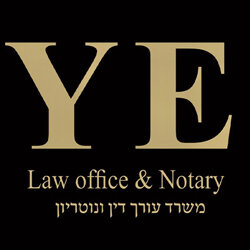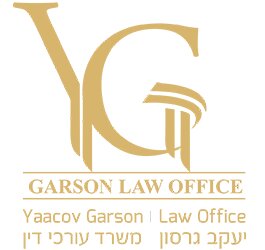Best ADR Mediation & Arbitration Lawyers in Jerusalem
Share your needs with us, get contacted by law firms.
Free. Takes 2 min.
List of the best lawyers in Jerusalem, Israel
About ADR Mediation & Arbitration Law in Jerusalem, Israel
Alternative Dispute Resolution (ADR) methods, such as mediation and arbitration, offer a private, efficient, and less adversarial means of resolving disputes compared to traditional court litigation. In Jerusalem, ADR is increasingly popular due to its flexibility, confidentiality, and potential cost savings. Mediation involves a neutral third party facilitating negotiations between disputing parties to help them reach a mutually acceptable agreement. Arbitration, on the other hand, involves a neutral arbitrator making decisions after hearing both sides' arguments. Israeli law supports and often encourages the use of ADR to handle various disputes, including commercial conflicts, family disputes, and labor disagreements.
Why You May Need a Lawyer
Legal expertise is crucial when navigating ADR processes for several reasons:
Understanding Legal Rights: Lawyers help ensure that you are fully aware of your legal rights and obligations in any mediation or arbitration process.
Preparing Documents: Legal documentation in ADR can be complex. A lawyer can assist in drafting, reviewing, and finalizing important documents such as mediation agreements and arbitration awards.
Representation: In arbitration, where the process can resemble a court trial, having legal representation can significantly impact the outcome. Lawyers can articulate your position, present evidence, and make compelling arguments.
Neutral Selection: Lawyers can help select an appropriate mediator or arbitrator, considering their expertise and neutrality.
Strategic Guidance: A lawyer provides strategic advice tailored to your specific situation, helping you achieve the best possible result.
Local Laws Overview
Key aspects of ADR laws in Jerusalem include:
Mediation and Arbitration Law: Israeli law categorically recognizes and enforces mediation and arbitration agreements, provided they adhere to legal standards of fairness and impartiality.
Enforceability: Arbitration awards are generally binding and enforceable, akin to court judgments, under the Israeli Arbitration Law of 1968. Mediation agreements, once signed, also hold significant legal weight.
Confidentiality: Both mediation and arbitration proceedings are typically confidential, protecting the privacy of the parties involved.
Court Referral: The Israeli court system often encourages ADR by referring appropriate cases to mediation or recommending arbitration before resorting to litigation.
Frequently Asked Questions
What is the difference between mediation and arbitration?
Mediation involves a neutral third party who facilitates discussion and negotiation between disputing parties to help them reach a voluntary agreement. Arbitration involves a neutral arbitrator who hears both sides and makes a binding decision.
Is ADR legally binding in Jerusalem?
Mediation agreements are binding once parties voluntarily sign them. Arbitration decisions are generally binding and enforceable, similar to court judgments, under Israeli law.
How long does the ADR process typically take?
The duration varies depending on the complexity of the dispute and the willingness of parties to cooperate. Mediation typically concludes faster than arbitration, often within a few sessions, while arbitration may take longer, akin to a court trial.
Can I choose my mediator or arbitrator?
Yes, parties have the flexibility to select their mediator or arbitrator. It's common to choose a professional with specific expertise relevant to the dispute.
What types of disputes are suitable for ADR?
ADR is suitable for a wide range of disputes, including commercial conflicts, family matters, labor disputes, and more. It's particularly effective where parties seek a quicker, private resolution.
What should I prepare for an ADR session?
Prepare all relevant documents and evidence supporting your case. It's also crucial to have a clear understanding of your legal rights and objectives. Consulting a lawyer beforehand can provide strategic insights.
Is confidentiality guaranteed in ADR proceedings?
Yes, both mediation and arbitration proceedings are typically confidential, which helps protect sensitive information and encourages open communication between parties.
Are there any costs associated with ADR?
While ADR can be cost-effective compared to litigation, there are still costs involved, including fees for mediators, arbitrators, and legal representation. These costs are usually shared between parties.
Can ADR decisions be appealed?
Arbitration decisions are generally final and binding, with limited grounds for appeal. Mediation agreements are binding once signed, but parties can seek court intervention if issues arise with the agreement's enforcement.
When should I avoid ADR and opt for litigation?
ADR might not be suitable for disputes requiring public record or precedential legal rulings, or where there is a significant power imbalance between parties. Consulting a lawyer can help determine the best approach for your specific situation.
Additional Resources
Consider the following resources for additional information and assistance:
Jerusalem Arbitration and Mediation Center: Provides mediation and arbitration services for various dispute types.
Israel Bar Association: Offers resources and referrals to qualified ADR professionals.
Ministry of Justice: Provides information on legal processes, including ADR regulations.
Jerusalem Legal Aid Center: Provides legal aid and support, including in the realm of ADR.
Next Steps
If you find yourself needing legal assistance in ADR mediation or arbitration, follow these steps:
Consult a Lawyer: Seek advice from a qualified lawyer specializing in ADR. They can guide you through the process, help prepare your case, and represent you during proceedings.
Gather Evidence: Collect all relevant documents, correspondence, and evidence related to your dispute to support your case effectively.
Select a Neutral: With your lawyer’s assistance, choose a suitable mediator or arbitrator experienced in handling your type of dispute.
Engage in the Process: Actively participate in mediation or arbitration sessions, following your lawyer’s guidance and being open to negotiation and compromise where appropriate.
Finalize Agreements: Ensure that any agreements or arbitration awards are documented properly and, if necessary, submit them for enforcement.
Lawzana helps you find the best lawyers and law firms in Jerusalem through a curated and pre-screened list of qualified legal professionals. Our platform offers rankings and detailed profiles of attorneys and law firms, allowing you to compare based on practice areas, including ADR Mediation & Arbitration , experience, and client feedback.
Each profile includes a description of the firm's areas of practice, client reviews, team members and partners, year of establishment, spoken languages, office locations, contact information, social media presence, and any published articles or resources. Most firms on our platform speak English and are experienced in both local and international legal matters.
Get a quote from top-rated law firms in Jerusalem, Israel — quickly, securely, and without unnecessary hassle.
Disclaimer:
The information provided on this page is for general informational purposes only and does not constitute legal advice. While we strive to ensure the accuracy and relevance of the content, legal information may change over time, and interpretations of the law can vary. You should always consult with a qualified legal professional for advice specific to your situation.
We disclaim all liability for actions taken or not taken based on the content of this page. If you believe any information is incorrect or outdated, please contact us, and we will review and update it where appropriate.
















